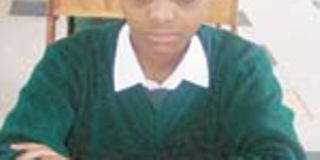Radical changes as KCSE exams begin

Candidate at Masai Girls School in Ngong wait for the start of KCSE rehearsals last Thursday. The Form Four examinations begin today.
Radical changes have been introduced in the secondary school examinations that begin countrywide today.

Candidate at Masai Girls School in Ngong wait for the start of KCSE rehearsals last Thursday. The Form Four examinations begin today.
Photo/Antony Omuya
In a ground-breaking move in the history of the final secondary school tests, candidates will be allowed to walk into the examinations rooms with calculators.
The gadgets were never allowed in the past as it was assumed that they made it easy for students to get answers to mathematical questions without knowing the actual process.
In the new Kenya Certificate of Secondary Education (KCSE) exams, candidates will sit a total of 22 subjects, down from 32. The subjects will be tested in 57 papers instead of the previous 78.
The changes follow the implementation of a revised curriculum for secondary and primary school. The new curriculum was introduced in 2003 in Standards One and Five and Form One and implemented progressively till this year when it is being examined for the first time.
Among the new changes in the exams is the merger of some subjects into one. Accounting, commerce, economics and office practice, which used to be examined separately, have been combined and will be tested as one subject — business studies.
The following subjects will no longer be examined: social education and ethics, woodwork, metalwork, building construction, power mechanics, electricity, drawing and design, accounting, commerce, economics, typewriting with office practice.

Prof Mutahi
According to the Kenya National Examinations Council (Knec), some 243,453 candidates will sit the KCSE exams — down from 260,665 last year. The exams end on November 17.
Knec says major changes have been introduced in English, mathematics, biology and business studies.
English adopts an integrated approach, where language will be tested together with literature. Previously, the two were tested as separate papers, with language being tested in papers One and Two; and literature in Paper Three.
In the new format, English Paper One will examine functional skills — application of language in daily life; while paper two will contain comprehension, literary appreciation and grammar. Paper three tackles creative composition and composition based on set literature text books.
Previously, Paper One was on composition; Paper Two grammar and; Paper Three literature. The literature paper comprised oral literature, poetry and set literary books. But now all these have been merged and are being tested together in all the three papers.
For example, functional skills tested in Paper One is about prose; literary appreciation in Paper Two is about writing techniques used in literature; and so is Paper Three's creative composition based on set text.
Contrary to earlier speculation, there will be no oral tests in English, Knec secretary Paul Wasanga, said. "There have been fears that English will be tested orally — this is not true," he said.
However, other languages — French, German and Arabic — will have oral tests. Kiswahili's format remains the same, with Paper One testing composition (insha), paper two language (lugha) and paper three literature (fasihi).
Use of calculators
In mathematics, the major change is the inclusion of questions testing use of calculators, which has been introduced as a topic of study — technological innovations in computing.
Thus, unlike before, students will walk with the gadgets into the exam room, but there is a caveat — they must use only specified makes of calculators.
"Until now candidates have not been allowed to use calculators in the KCSE mathematics papers although there have always been suggestions that this should be allowed. The teaching and use of calculators in mathematics was introduced in the revised syllabus. The specification of the calculators has been given and must be adhered to strictly," says Mr Wasanga.
In fact, in maths test, candidates had to show the method they used to arrive at a given answer — and every step was awarded marks even if the final answer was not correct. Such process-oriented testing would not have been possible if candidates used calculators.
Biology, which so far has been tested in two papers, will now be examined in three papers just like physics and chemistry. Thus, biology papers One and Two will test theory while Paper Three will be practical.
Despite the change in the curriculum, the subject clusters remain the same. The clusters are as follows:
Compulsory subjects — English, Kiswahili and mathematics.
Group two — biology, physics, chemistry and biological science (taken by blind candidates).
Group three — history and government, geography, Christian religious education, Islamic religious education and Hindu religious education.
Group four — home science, art and design, agriculture, computer studies, aviation.
Group five — French, German, Arabic, music, business studies.
For grading, candidates must take all the three compulsory subjects, at least two sciences, one humanities and at least one practical or technical subject.
Meanwhile, exam council chief Mr Wasanga has sent out an alert to prevent cheating in exams. Exam supervisors are under strict instruction to frisk all candidates to stop students smuggling illegal materials into the exam room.
Last year, there were 375 cases of candidates smuggling materials into the exam room to aid them in cheating.
Mobile phones are also not allowed in the exam rooms as they can be used to cheat through text messages.
Third review
The new changes in the curriculum mark the third review of the 8-4-4 system that was introduced in 1985. The first review was in 1992, which saw the number of examinable subjects slashed from 10 to 8. The second review was in 1999 during which the number of examinable subjects was cut from eight to seven at KCSE and seven to five at KCPE.




